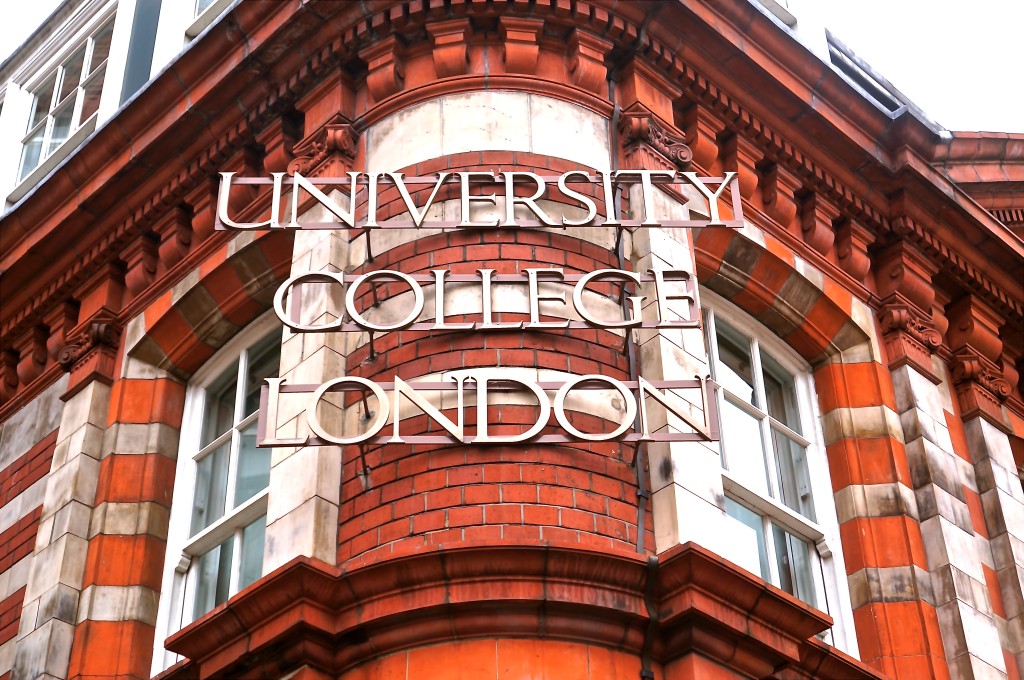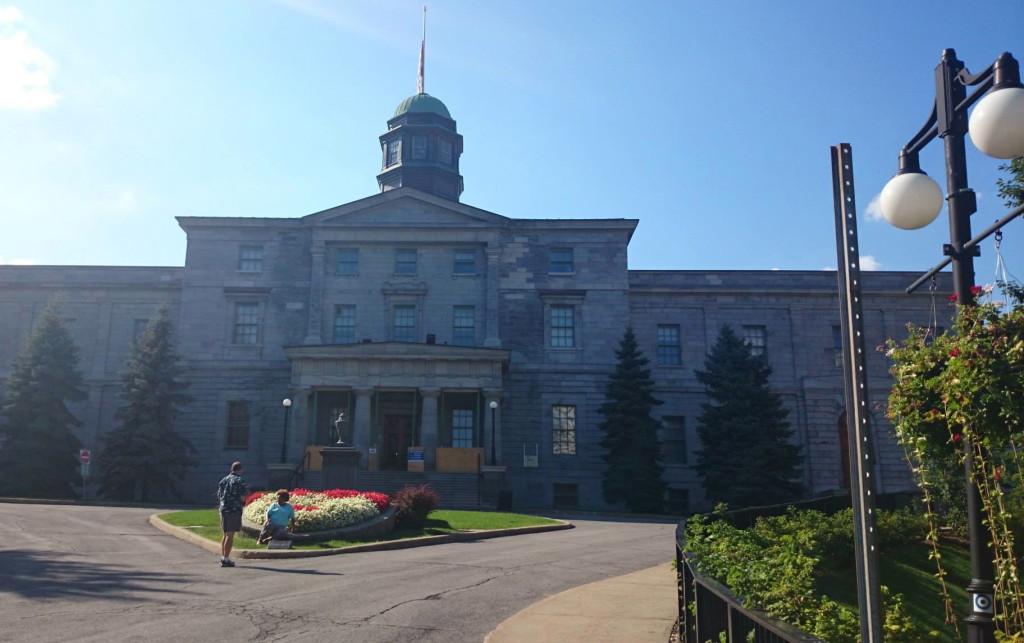
Exchange experiences – Breaking out of the academic routine 2
In the second post of this week’s theme, we follow up on the experiences of two RUG students studying abroad. In their last post, Julian and Pia wrote about their motivation for choosing their host universities as well as the selection procedure and preparation. Now, read about their first impressions of their new environments. Have their expectations been met?
Julian Mutz on exchange in London, England
I still vividly remember how I first came to Groningen in 2012 to start my BSc in Psychology. Even though I had visited other cities throughout the Netherlands before, it was a very different feeling to know that I would call this country ‘home’ for the next few years. People were speaking a language that is somewhat different from mine, I had to get used to a completely different daily routine and, most obvious to me, I did not know anyone. To my relief, I discovered that the various student associations were organising so-called introduction weeks to make the transition to a new environment easier for those students who just arrived. I decided to join the ESN Introduction Week, which was a lot of fun and helped me get to know my way around Groningen. Most importantly though, I got to know quite a few people during that week.
Since I have been living in different countries for a number of years by now, my arrival in the UK was a little different to the experience that I had when I first came to Groningen. I was still excited about living in London for the next year, but it was a lot easier and not so overwhelming to adapt to my new environment. The part of the experience that was most similar to my first days in Groningen was that I did not know anyone. However, this would change very soon!
During the first two weeks before term starts, students in the UK celebrate what they call ‘freshers week’. This is quite similar to the introduction weeks taking place in Groningen and essentially means being bombarded with an overwhelming number of events and parties that are being organised for new arrivals. The range of options where you could go to is actually so broad that you feel unable to make a decision. As many of you probably know, this phenomenon has been termed the paradox of choice. However, after going through the pain of making decisions, it was a great opportunity to get to know the many student unions and societies, as well as the people you go to uni with. Already on the first day after my arrival, I knew that I was going to be surrounded by students from many different cultures and that I would share my flat with students from Australia, India, Colombia, England and France – how exciting!
Throughout the past three months, I got to know the British university system quite well and a number of things are very different from the Netherlands. Rather than a compulsory reading list for every module, lecturers typically suggest reading material and leave it up to the students to decide what material to read. The consequence of this is that I spend my time reading articles and book chapters that I am really interested in and discard material that I am neither curious nor passionate about. Another major difference is that the year is split into three terms rather than two semesters, and exams only take place at the very end of the academic year. I generally perceive this as a lot less stressful, but am still agnostic about whether this system is actually as productive as the Dutch one. In terms of cultural differences, my experience over here is very similar to what Roos Cornelius wrote in a previous post about the sound of silence; no applause after lectures.
Since I regularly attended and very much enjoyed the public lectures and discussions that are being organised by Studium Generale in Groningen, I certainly did not want to miss out any opportunity to broaden my academic horizon over here as well. Fortunately, there are many comparable events taking place at UCL, and I have already attended a talk by Professor Uta Frith on autism, a lecture by NASA’s Chief Scientist Dr. Ellen Stofan and Chief Technologist Dr. David Miller on the future of space exploration, and several research talks that are regularly organised by the UCL Neuroscience Society. It was also very exciting to talk with colleagues of John O’Keefe who was recently awarded a Nobel Prize in Physiology or Medicine for his research on place cells.
But living in a metropolis as vibrant as London is not only about university life! There is a plethora of museums, churches, monuments and other places worth seeing if you ever decide to visit London. I can recommend several free (!) walking tours that are guided by students who are both very knowledgeable and entertaining. Even though most major tourist attractions have very high entrance fees, there are more affordable ways to see St. Paul’s Cathedral or Westminster Abbey from inside. Just go there for a service, which is free of charge, and take enough time when entering and leaving.
Pia Kreijkes on exchange in Montreal, Canada
I ended my last post by describing how excited I was to finally get onto the plane to Montreal. However, I first stopped over in New York City, where I spent an incredible time meeting fascinating people through couchsurfing. From there, I took the Greyhound bus to Montreal. Except for some troubles at the border between the USA and Canada (the staff seemed to have forgotten that a visa is not required for students staying for less than six months), everything went smoothly. I directly moved into an apartment that I had found when I was still in Germany. My three French roommates provided me with a warm welcome, showed me around, and introduced me to their friends – who quickly became my friends as well. Even though we had some communication difficulties (“merci” was about the only French word I knew at that time), we had much fun. I started a 4-weeks language course for beginners at ALI (académie linguistique internationale), which I can highly recommend. Besides making new friendships, it is important to learn French as you hear it everywhere on the streets, in cafés, and supermarkets. Almost everyone will be able to speak English; nevertheless, you can feel that the people of Montreal appreciate if you try.
It was still a month until the semester started but I could not wait to have a first look at McGill. I met with my “student buddy”, who was assigned to me to answer questions and explain how to get around the university. One of the most important things I learned from her was how not to get lost in the tunnels connecting the lecture buildings, which are used when it’s too cold to walk outside during winter. My first impressions were great: the university has beautiful old buildings and the campus is very inviting; students are playing sports on the field or are just lying on the grass to enjoy the sun.
The way and quality of living in Montreal are very much comparable to the Netherlands. Further, the city is very multicultural and open to all people. This was apparent by the diverse inhabitants, who made living in Montreal such a wonderful experience. Before the semester started, I left my first apartment to move into an area called Mile End, which is the Jewish quarter. Sometimes it felt like a different world to me because many people living there were strongly religious and dressed according to old traditions. I loved living in that neighbourhood because of its cosy cafés, its many vegetarian restaurants, and especially because of Mile End’s artistic flair.
In my experience, the living costs are slightly higher than in Groningen. I had to pay more for my rent and also frequently took the metro and bus. Of course, you could also just take your bike, which is not unusual during summer and fall. While food costs were overall similar, dairy products were extremely expensive (not to mention the costs for wine and beer). There are cafeterias on the campus, which, unfortunately, have prices comparable to those in normal cafés. Yet, thanks to the Midnight Kitchen, a wonderful student initiative at the university, students can eat vegan pay-what you-can lunches.
Spending the summer (and winter too – more about that in my next post) in Montreal was fantastic because there is heaps to do when the weather is nice. For instance, walking up Mount Royal, a hill in the city where you can get a fantastic view, or going to the Tam Tams, an annual festival that takes place all summer. Every Sunday, people meet at the foot of Mount Royal to play the drums, dance, or just relax while having a picnic. Here, you really get to know how colourful the city is, as this is the meeting place for all generations and subcultures; you even get to see some medieval foam weaponry fighters. Besides, Montreal offers many more cultural activities: there is a great variety of museums, art exhibitions, and festivals. Many of the music events are for free, which of course is great for students. Also, Montreal has little cafés everywhere which often have a homey feel to it; you get to know the staff and can spend there all day meeting your friends, listening to live music, and enjoying a good cup of coffee.
In my next, and last, post I will tell you more about McGill University itself, about the courses I took, and about the student life in general.
—>Note: Images by Julian and Caroline.






hi Julian and Pia, I very much enjoyed reading this post. It reminded me of my buddy experience at McGill and yes, Pia, those tunnels! I also remember the public lectures at McGill very well (with famous speakers like Frans de Waal, Richard Dawkins, and Benjamin Netanyahu), so I was happy to read Julian had similar experiences at UCL.